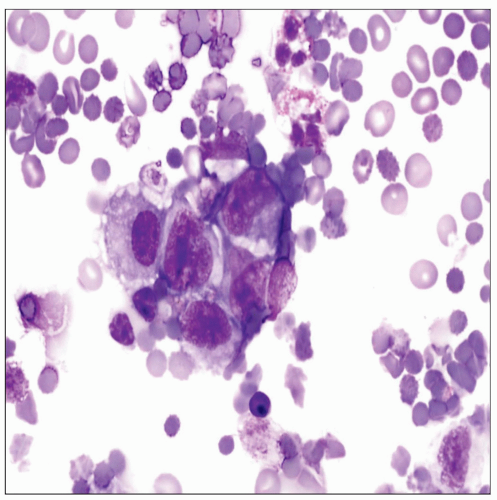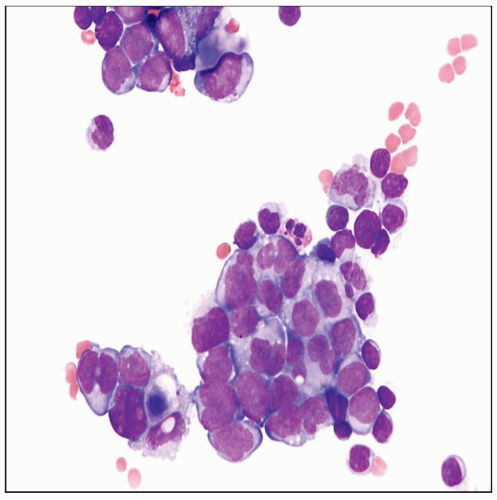Malignant Effusion, Sarcomas
Donna M. Coffey, MD
Nour Sneige, MD
Key Facts
Clinical Issues
Most sarcomas of pleura are metastases or sarcomatoid mesotheliomas
Primary pleural sarcomas include synovial sarcomas, leiomyosarcomas, vascular sarcomas, and malignant fibrous tumors
Sarcomas account for < 6% of malignant effusions, and diagnosis is usually made in setting of a known primary
Cytopathology
Most cases exhibit scant cellularity
Sarcoma cells exfoliate as single cells or loose clusters
In most cases, sarcomas in fluids have round to oval nuclei
Cytoplasm can vary from abundant and vacuolated to dense and scant
Morphology of tumor cells in fluids can differ from that of original tumor
TERMINOLOGY
Definitions
Mesenchymal tumors of pleura are relatively rare, and the vast majority are benign
Primary pleural sarcomas are exceedingly rare; most sarcomas of pleura are metastases or sarcomatoid mesotheliomas
Synovial sarcomas, leiomyosarcomas, vascular sarcomas, and malignant fibrous tumors
Sarcomas account for < 6% of malignant effusions, and diagnosis is usually made in setting of a known primary
CLINICAL ISSUES
Prognosis
Primary pleural synovial sarcomas occur mostly in young or middle-aged adults
Most patients present with chest pain
Synovial sarcoma can present as a circumscribed mass or grow diffusely over pleura, simulating diffuse malignant mesotheliomas (DMM)
Stay updated, free articles. Join our Telegram channel

Full access? Get Clinical Tree




